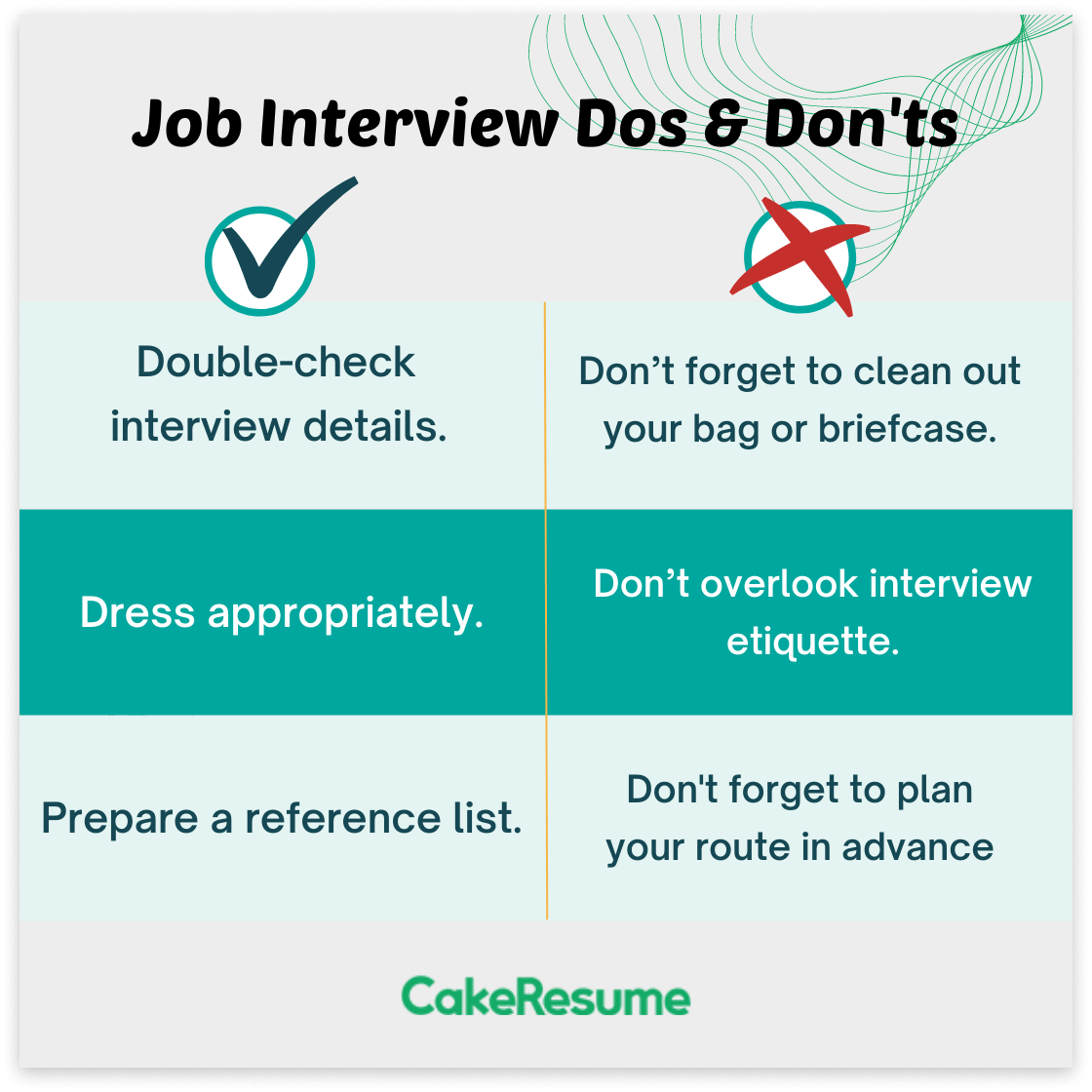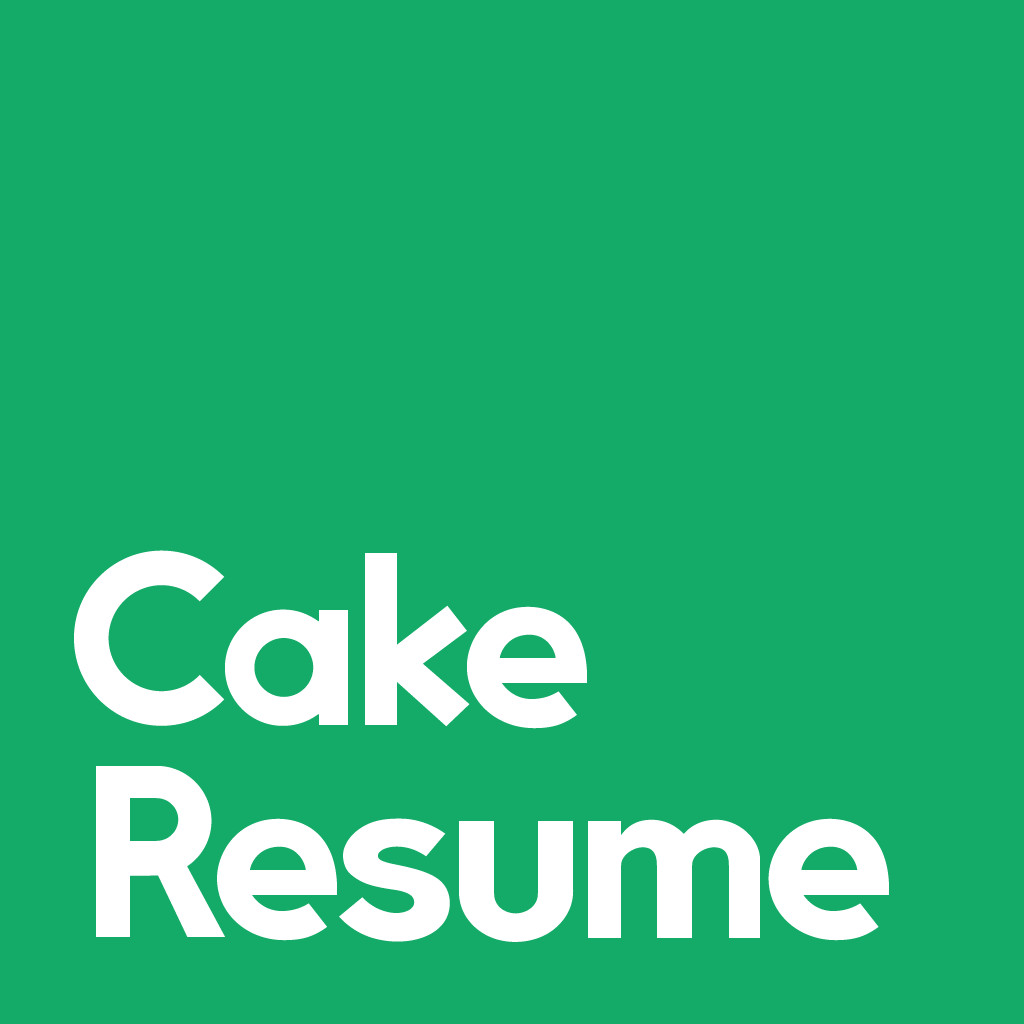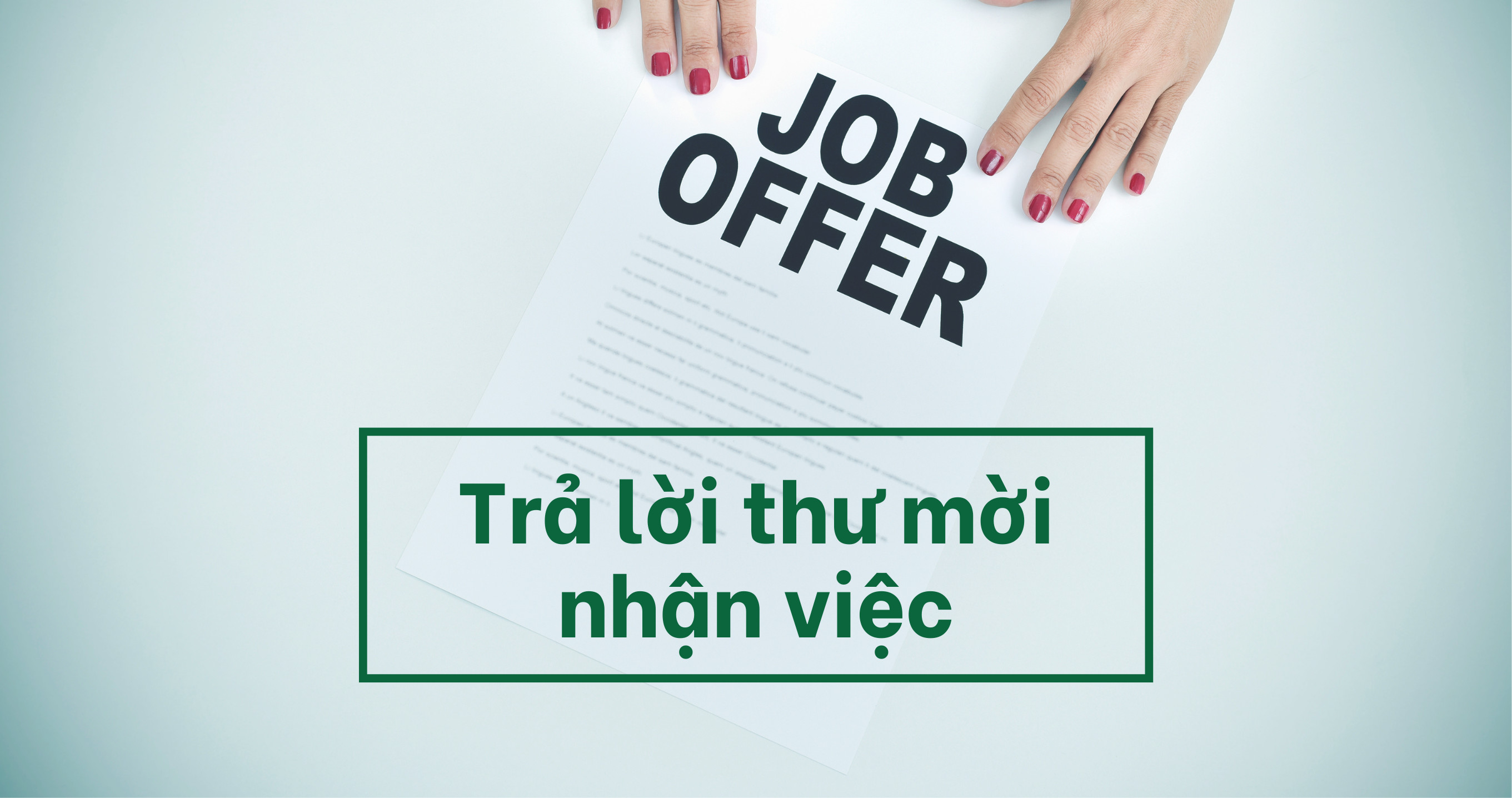How to Prepare for a Job Interview [Steps, Tips & Common Questions]

In this article, you will learn about:
You have a job interview coming up, and what will you do to prepare for it? In this guide, we will show you how to prepare for an interview as well as provide helpful job interview tips and interview skills.
Interviews play an integral part in the hiring process. From the perspective of job seekers, job interviews allow you to learn more about the role and the company so that you can decide whether that job aligns with your career path.
The employer, meanwhile, conducts interviews to determine if your skills, experience, and personal traits meet the job's requirements and if you fit in with the company’s culture.
As a job seeker, there are several difficulties you may often encounter during a job interview, including:
- Enter the interview with little preparation
- Don't know about the employer
- Lack basic interview skills
- Ask the wrong questions
- Don't know how to answer questions
How to Prepare for a Job Interview
In this part, you will learn about the interview guidance that can be applied to different situations.
Step 1: Do a thorough research of the company.
Step 2: Know who the interviewer is.
Step 4: Prepare answers for common interview questions.
Step 5: Outline your answers in bullet points.
Step 6: Prepare questions to ask the interviewer.
Step 7: Pay attention to your voice and body language.
Step 9: Update and print your resume/CV for the interview.
Step 10: Send thank-you notes.
Step 1: Do a thorough research of the company.
The very first step to prepare for a job interview is to have a clear understanding of the company you may work for, including:
- Products/services
- Company mission and values
- Clients
- Company culture
By doing thorough research of the employer, you can be certain that this is the environment you enjoy working in. Additionally, you can give employers a clear answer in case they ask you to share some knowledge about the company.
Step 2: Know who the interviewer is.
It's important to know who is going to interview you because interview questions may vary depending on the interviewer’s job role.
If you're going to have an interview with the recruiter or HR staff, you're likely to be asked to briefly share your educational background and experience.
They also prefer to know about your personality to see if you are a cultural fit. Meanwhile, the potential manager expects to hear more about your professional experience, achievements, and career objectives.
Step 3: Know your motivation.
Employers would like to hear a more thoughtful answer that makes you stand out from other candidates.
It means that you have to show them why you want to work with them and what values could you bring to the company, and also convince them why you're the best fit for the role.
Step 4: Prepare answers for common interview questions.
An important part of preparing for a job interview is to think about what employers may ask you. Check out the list below for the most frequently-asked things by recruiters and hiring managers:
- Educational background
- Job responsibilities in the former roles
- Professional accomplishments
- Strengths and weaknesses
- Career goals
- Work environment preferences
Having answers prepared in case these common questions are asked during the interview could save you in case you suddenly cannot come up with a good answer on the spot, and could also make you seem prepared and interested in the job.
Step 5: Outline your answers in bullet points.
After you finish preparing answers for common interview questions, write down a simple outline of what you plan to say for each question in bullet points.
Memorizing the complete answers line by line not only is impractical but also does you a disservice.
The interview is likely to notice the unnatural way you talk when you try to remember the lines you memorize. Choose to list the main points to remind yourself of the answers instead.
Step 6: Prepare questions to ask the interviewer.
As mentioned earlier, interviewing is a chance for you to sniff out whether the job and the company align with your career objective. Thus, feel free to bring up questions to ask the hiring manager, for example:
- How many people are there in the team at the moment?
- What's your favorite part about working here?
- Does the company plan to expand the business or develop any new product in the coming year?
- What is the biggest challenge I might face when starting the job?
Especially when you’re preparing for a job interview for a remote position, you might want to ask about the working time and employee benefits.
💡 Note: The questions to ask hiring managers should not be about information mentioned in the job description, otherwise they might think that you haven't reviewed it carefully.
Step 7: Pay attention to your voice and body language.
Regarding your tone of voice, try to speak clearly and match your interviewer's volume. Therefore, they can hear everything you say well and be sure you're interested in this position.
Body language is also an important factor in a job interview that may make or break your chance. The perfect body language includes eye contact, hand gestures, and a smile.
That's why you should prepare for a job interview by practicing with a partner.
Step 8: Do mock interviews.
The best jobs interview tip is mirroring an actual job interview, especially if you're a fresh graduate. As the saying goes, “practice makes perfect.”
Doing a mock job interview will help you practice what to say and do, minimize your weaknesses, and boost your self-confidence for the actual interview.
Step 9: Update and print your resume/CV for the interview.
Even if you're not required to bring a resume/CV to the job interview, keep in mind that hiring managers might not have a copy of it on hand.
They are busy and there might be a lot of candidates for a single role. Bringing a printed copy of your resume/CV could also show that you are prepared.
Step 10: Send thank-you notes.
Many of you may overlook this step but this is considered among the most successful job interview tips.
A thank-you email after the interview reflects your respect, appreciation, and professionalism toward the hiring manager and team. It also shows that you're truly interested in working for the company.
Tips on How to Prepare for a Successful Interview
In addition to general interview guidance, you might find specific job interview tips for different situations as shown below.
- How to prepare for a phone interview
- How to prepare for an online interview
- How to prepare for a second interview
- How to prepare for a panel interview
- How to prepare for a case study interview
- How to prepare for a group interview
- How to prepare for a technical interview
- How to prepare for a promotion interview
- How to prepare for interview for freshers
- How to prepare for an informal interview
💡 How to prepare for a phone interview
- Confirm the phone number and scheduled time.
- Provide additional contact information in case the call drops.
- Know who will be calling you.
- Find a quiet spot to talk.
- Eliminate distractions.
- Take advantage of being unseen (i.e., wearing comfy clothes, having a list of interview prep questions and answers in front of you).
💡 How to prepare for an online interview
- Confirm the scheduled time and the link to the online interview.
- Provide additional contact information in case the video call drops.
- Find a spot that is quiet and has a strong Internet connection.
- Dress professionally.
- Test the Internet connection.
- Create good lighting and sound.
- Log on at least 10 minutes before the interview.
💡 How to prepare for a second interview
- Learn about your interviewers.
- Review notes from the previous interview.
- Prepare for more in-depth questions.
- Prepare more questions to ask the interviewer.
💡 How to prepare for a panel interview
- Review the job posting carefully.
- Practice great body language and eye contact.
- Prepare many questions to ask the hiring committee.
- Practice role-playing with your peers to boost your self-confidence.
- Research the individuals who will join the interview.
💡 How to prepare for a case study interview
- Research the company and the position thoroughly.
- Think about potential questions that might be asked.
- Prepare for the answers accordingly.
- Don’t defend your solution at all costs.
- Learn how to manage time effectively.
💡 How to prepare for a group interview
- Arrive ahead of schedule.
- Prepare an impressive self-introduction.
- Learn to listen and observe.
- Try to answer first and speak confidently.
- Avoid interrupting the competitor(s).
💡 How to prepare for a technical interview
- Make sure you clearly understand the tools and skills required for the role.
- Learn from relevant books and digital publications.
- Do regular practice.
- Prepare a relevant project to talk about in the technical interview.
- Don’t hesitate to ask for clarification if you don’t understand the question/problem.
- Take the time you need but not too long.
💡 How to prepare for a promotion interview
- Talk with your supervisor/mentor.
- Look over your experience and accomplishments in the field.
- Talk about how you have improved.
- Focus on the past reviews on your work performance.
- Convince them of the contribution you will bring to the organization.
💡 How to prepare for interview for freshers
- Talk with your professor, mentor, or people who are more experienced.
- Have your CV and cover letter polished.
- Know which company and position you’re applying for.
- Follow the dress code.
- Demonstrate strong communication skills.
- Maintain a great attitude.
- Show gratitude.
💡 How to prepare for an informal interview
- Run through your educational qualification, professional experience, and accomplishments.
- Don’t speak too freely.
- Ask what the recruiter is looking for in a good candidate.
- Be prepared to outline your strengths and key skills with key examples.
- Prepare relevant documents to show the interviewer such as work samples and portfolio.
Job Interview Dos and Don’ts
✅ Dos
- Double-check interview details
Make sure you confirm with the recruiter or interviewer regarding the following information:
- Date and time (especially time zone if you are not located in the same region with the interviewer)
- Location
- Link to the online meeting (if you're going to join an online interview)
- Dress appropriately.
It's important to follow the dress code because it reflects your professionalism and a positive personal image. For women, this will be a blouse and dress pants or a statement dress. For men, a suit jacket and slacks with a shirt and tie are appropriate.
- Prepare a reference list.
Simply put, this is the list of the people who can prove your credentials and qualifications for a job. If you have a list of references, be prepared to provide it to prospective employers. Also, don't forget to contact your references for permission prior to the interview.
❌ Don’ts
- Don’t forget to clean out your bag or briefcase.
You're going to look unorganized and unprofessional if you have to open your bag and rummage inside for a while. Just bring the essentials such as resume/CV, cover letter, pens, phones, wallets, and keys.
- Don’t overlook interview etiquette.
Improper interview etiquette will leave a bad impression and, at worst, cost you the job.
Let us give you some examples:
- Arrive late.
- Greet the interviewers with their first names.
- Forget to turn off the phone ring.
- Interrupt the interviewers.
- Don’t pay attention to what the interviewers say.
- Don't forget to plan your route in advance.
Being late is one of the most common mistakes in a job interview. If you are going to have an in-person interview, make sure you have checked the way to get there. It's recommended you arrive at the location of your interview at least 15 minutes ahead of your scheduled appointment.
Common Interview Questions and Answers
In this part, you will find examples of 15 common interview questions and a sample answer for each. From the examples, you can get an idea of how to prepare for interview questions in advance.
- Q1: Can you tell me a bit about yourself?
- Q2: What is your greatest strength?
- Q3: What is your biggest weakness?
- Q4: Can you share about your greatest professional achievement?
- Q5: Tell me about a challenge you’ve faced at work, and how to deal with it.
- Q6: Why are you leaving your current job?
- Q7: Where do you see yourself in five years?
- Q8: How did you hear about this position?
- Q9: Why did you want to apply for this job?
- Q10: Why should we hire you?
Q1: Can you tell me a bit about yourself?
“I’ve been passionate about [the field] since I was a kid. I studied [your major] at [your college] and have [number] of years of experience in [your areas]. My responsibilities include [job role 1], [job role 2], [job role 3], etc. I would say I am [soft skill 1], [soft skill 2], etc.
I am looking to further develop my [hard skill 1] and [hard skill 2] as a [position] in a [your favorite work style] environment.”
Q2: What is your greatest strength?
“My greatest strength is that I’ve always been detail-oriented in my work. To me, it’s not only about having a sense of responsibility but also something I enjoy doing. I would say I'm highly observant and able to pick up on minor details or changes that others often overlook.”
Q3: What is your biggest weakness?
“Sometimes I focus too much on the details so it turns out that I spend too much time figuring out the finer points. I’ve been striving to avoid unnecessary perfectionism as it may affect the whole team's process and ability to meet the deadline. To adjust this, I try to refocus on the bigger picture and set more realistic goals.”
Q4: Can you share about your greatest professional achievement?
“My greatest professional achievement occurred in my previous position as a/an [position]. I have successfully [what you have achieved] with an increase/a decrease of [a figure] in [the problem]. At the company year-end party, I was awarded [the prize].”
Q5: Tell me about a challenge you’ve faced at work, and how to deal with it.
“It was when I was working as a [job role] at [company name]. I noticed that [describe the issue] which reduced productivity and/or annual revenue. At that time, I took the initiative to [what you have implemented] to help [the purpose of your plan]. [Period of time], the result was [result 1], [result 2], etc.”
Q6: Why are you leaving your current job?
Below are some examples of positive reasons for leaving a job:
- I’m looking for a new challenge and a job with better career growth opportunities.
- I feel like I'm ready to take on more responsibility and develop more new skills.
- The company I worked for went out of business.
- I wanted to work in a different industry as well as in a new work environment.
- I believe I've progressed as far as I can in the latest role.
Q7: Where do you see yourself in five years?
“In the next five years, I would still be working in the same field. I'm always passionate about [your job area] so this is the career I want to pursue. However, I want to explore and develop skills in [new area 1], [new area 2], etc. I also hope to [your expectations in your career] because [the expectation you've just mentioned] is one of my core career goals.”
Q8: How did you hear about this position?
“I was looking actively for jobs and found your job posting on [the name of the job board or career website]. The job description looks exciting and mentions some great opportunities that I have been looking for to work towards my goal.”
Q9: Why did you want to apply for this job?
“I see this opportunity perfect for me due to my educational background and work experience. It allows me to utilize my existing skills and further develop new skills. It is also a way to contribute to a/an [adjective to describe the work environment] company/industry that I always want to work for.”
Q10: Why should we hire you?
For this question, check out these examples for different roles and professions.
With CakeResume, you can easily create a CV online and download your CV’s PDF format for free. Land your dream job and create your CV online (free download) now!
--- Originally written by May Luong ---
Khám phá thêm tài nguyên tuyển dụng và nghề nghiệp

With the intention of helping job seekers to fully display their value, CakeResume creates an accessible free resume/CV/biodata builder, for users to build highly-customized resumes. Having a compelling resume is just like a piece of cake!







